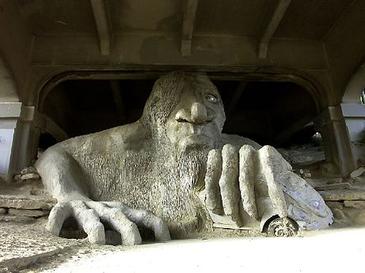






"Political language...is designed to make lies sound truthful and murder respectable, and to give an appearance of solidity to pure wind."In the essay, Orwell lays out several examples of what he considers to be poor writing and then lays out six rules that he suggests may be implemented by English writers seeking to turn the tide back in a progressive direction with regards to our language. It is striking that Orwell wrote this essay in 1946, long before things like Facebook, text messaging, E-mail, instant messaging, Twitter, and online comments sections have dragged the English language through the mud more than just about anything else in the history of the language.
If turbulence remains one of Roth's dominant literary tones, "Order in living" is now his credo. "Philip lives like he's at Fort Dix," his friend Ross Miller, who teaches literature at the University of Connecticut, told me. "Everything precise and hospital corners." Roth wakes early and, seven days a week, walks fifty yards or so to a two-room studio. The front room is outfitted with a fireplace, a desk, and a computer set up on a kind of lectern where he can write standing up, the better to preserve a bad back. There are pictures here and there of his family: his father, Herman, who sold insurance for Metropolitan Life; his mother, Bess; his older brother, Sandy, who used to be in advertising and now paints. Most of Roth's books are in the big house, where they run, room after room, in alphabetical order by category.
When I came to visit, it was a late-winter morning, and the snow was piled high around the studio. Roth was wearing a blue Shetland sweater, green corduroy pants. Often there is tweed. He dresses like a graduate student of the late fifties. He led me to the back room. There was a team photograph of the 1947 Brooklyn Dodgers. There were free weights, a lifting bench, and an exercise mat. He had quintuple-bypass surgery eleven years ago and is determined to keep in shape. He stays out here all day and into the evening: no telephone, no fax. Nothing gets in. In the late afternoons, he takes long walks, often trying to figure out connections and solve problems in the novel that's possessing him.
"I live alone, there's no one else to be responsible for or to, or to spend time with," Roth said. "My schedule is absolutely my own. Usually, I write all day, but if I want to go back to the studio in the evening, after dinner, I don't have to sit in the living room because someone else has been alone all day. I don't have to sit there and be entertaining or amusing. I go back out and I work for two or three more hours. If I wake up at two in the morning--this happens rarely, but it sometimes happens--and something has dawned on me, I turn the light on and I write in the bedroom. I have these little yellow things all over the place. I read till all hours if I want to. If I get up at five and I can't sleep and I want to work, I go out and I go to work. So I work, I'm on a call. I'm like a doctor and it's an emergency room. And I'm the emergency."
David Remnick, Reporting: Writings From The New Yorker

